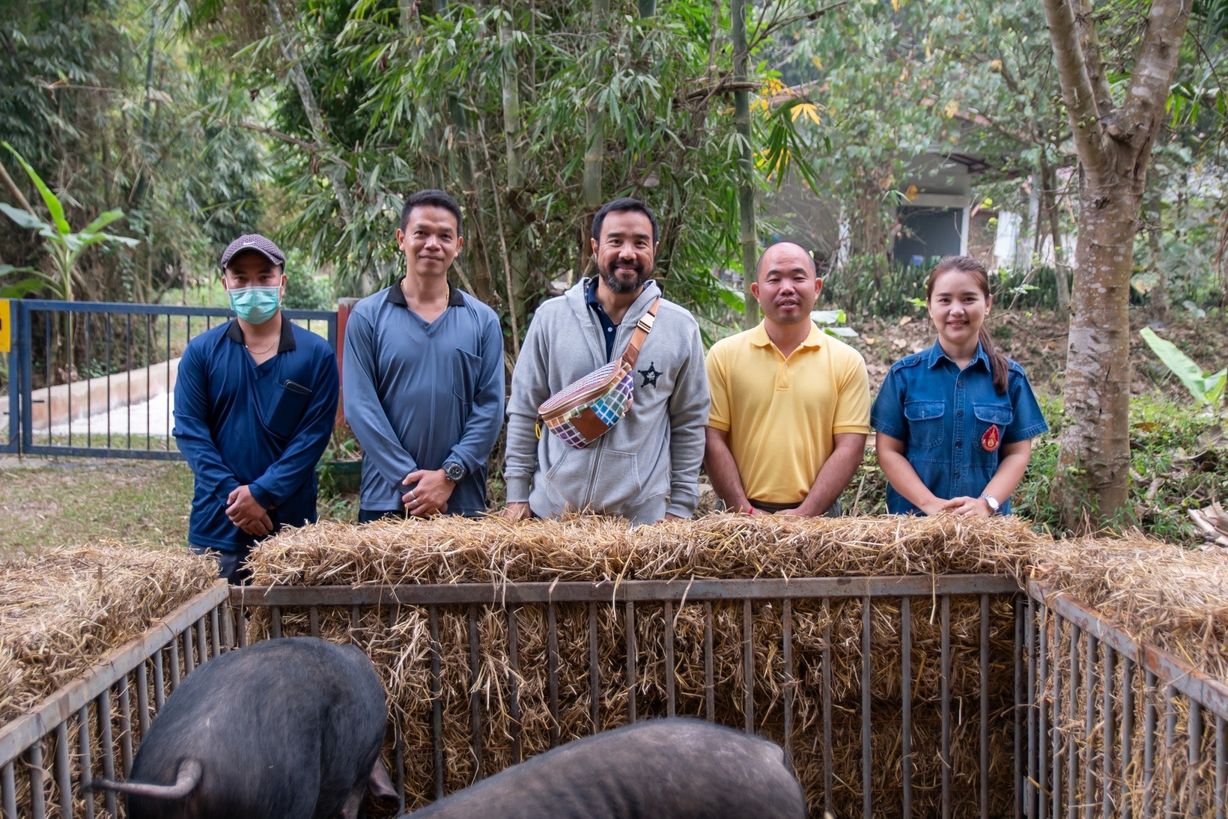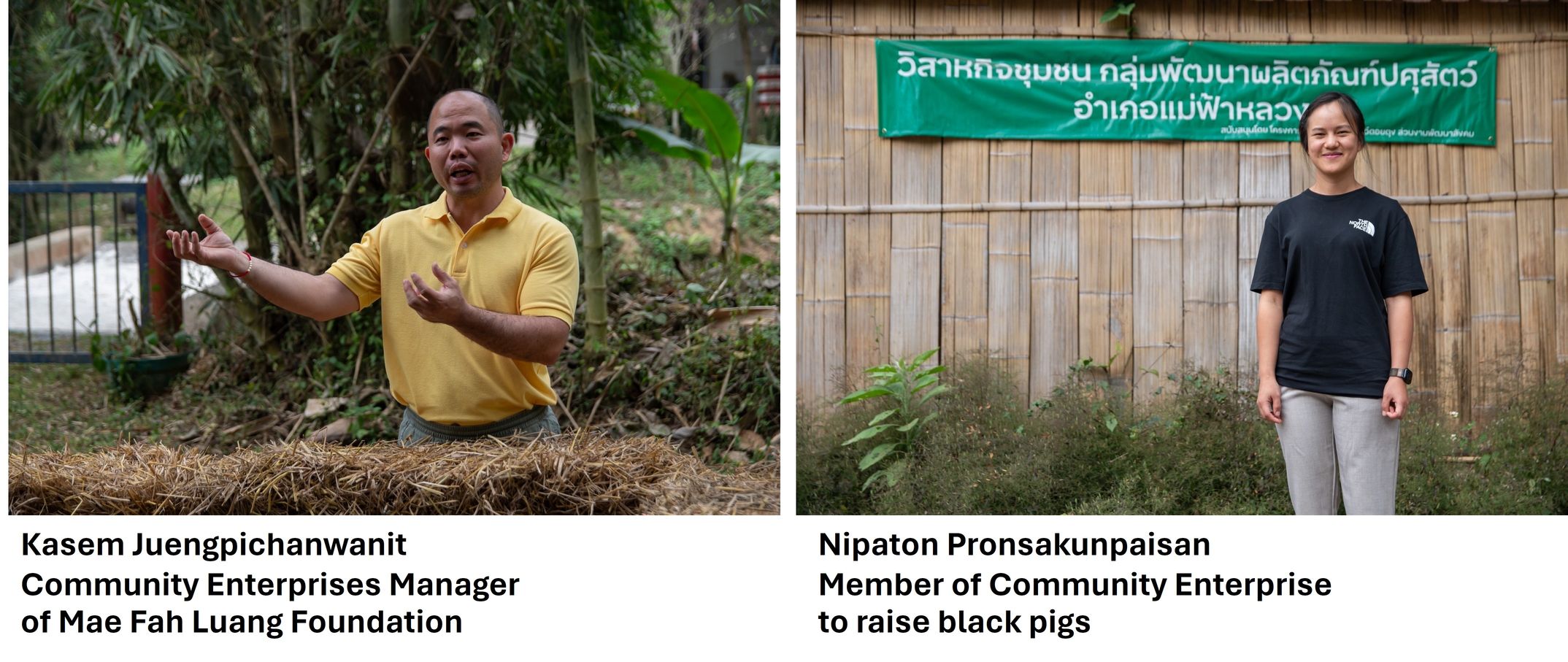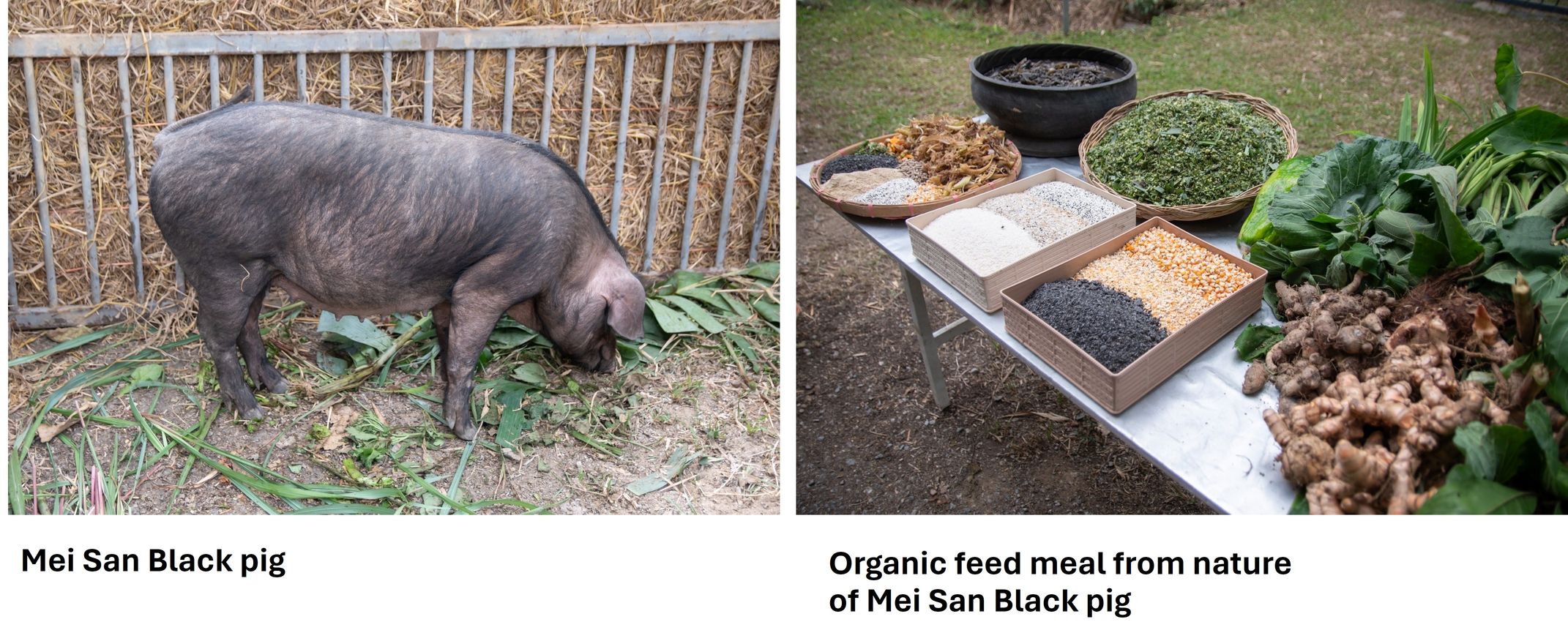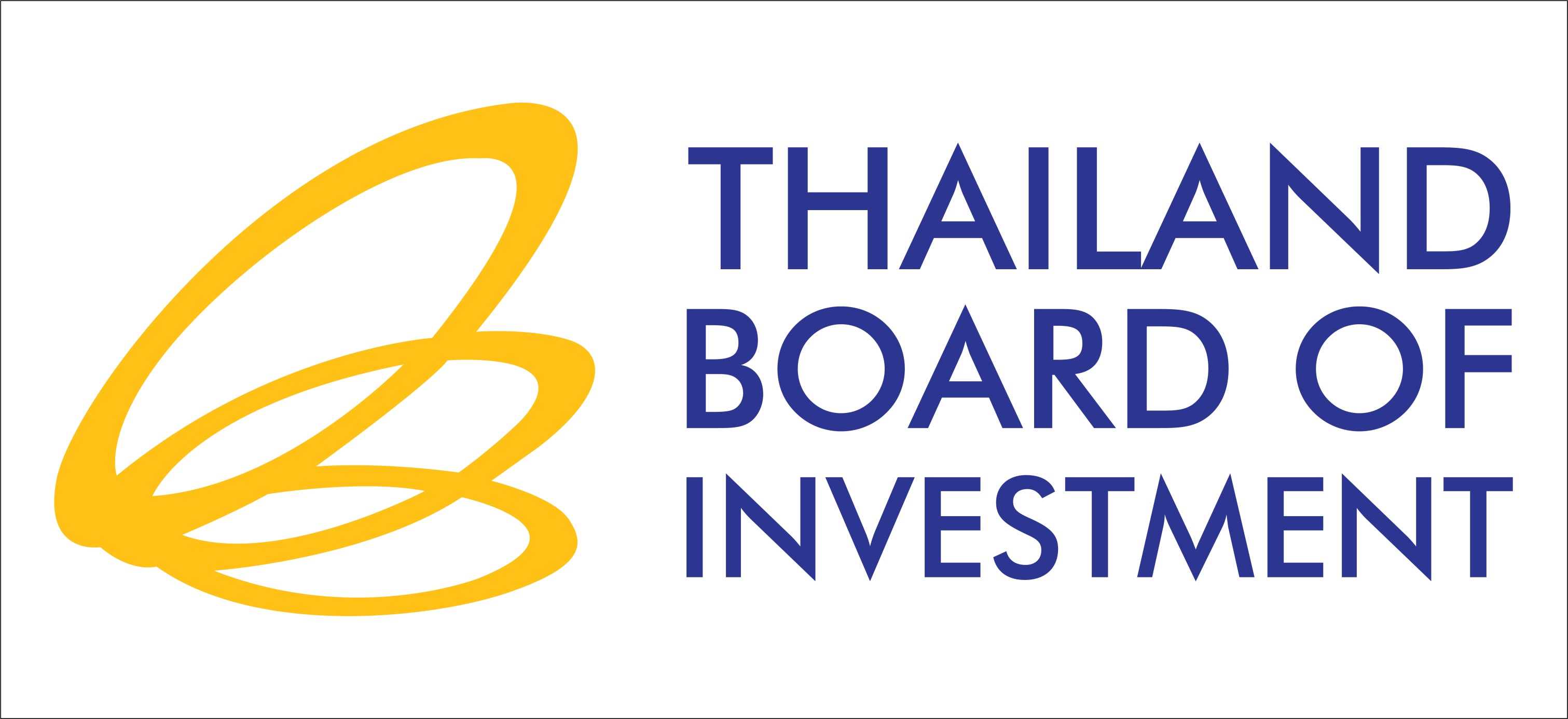Sustainability / Doi Tung pig farming
Sustainability / Doi Tung pig farming
Chatrudee Theparat
Mei San Black pig raising is a good alternative to generate more income for increasing living standard of local people and sustainable development in Doi Tung Development Project.
Doi Tung Development Project has supported the villagers in the project to raise Mei San Black pig and currently such a pig farming has become one of 29 community enterprises in Doi Tung Development Project.

The team of community enterprises of Mae Fah Luang Foundation
At present, there are 168 families to raise black pigs, and 91 families can generate 5.72 million baht annually or average 62,949 baht each household.
The Chinese government dedicated Mei San Black pigs to Her Maj Her Royal Highness Princess Maha Chakri Sirindhorn, later the Livestock Department conducted a research to develop a breed of Mei San Black pig.
Kasem Juengpichanwanit, community enterprises manager of Mae Fah Luang Foundation, said the project has supported the parent breeding stock to villagers so that they can earn more income.
“The project is in the process of developing the Mei San Black pig as an organic pig by feeding only food and medicine from nature. The special feed meal is blended with pre-biotic such as banana stalk with unroasted black and white sesame seed cake, perilla frutescens, broken-milled rice, stevia, pandan leaf, papaya, maize, blue gum and curcuma. And all are grown naturally in the areas.”

He said black pigs in the project are fed herb and feed meal that is developed by the project, as a way to avoid using antibiotics medicine. Therefore black pigs here are strong and have high immunity.
The project supports the villagers to raise black pigs with an introduction of good farming management (GFM) which could prevent spreading of African swine fever (ASF) when the disease spreads in the northern areas.
The project conducted a research on black pigs in 2016, later in 2020 the Mei San Black Pig Research and Development Centre received Good Agricultural Practice (GAP) certificate, the Ban Bala’s Community Enterprise to raise Mei San Black pig is established by 30 members.
In 2021, Ban Mai Samakee’s Community Enterprise to raise Mei San Black pig was established by 8 members, with GFM standards. Currently there are 54 members.
In 2023, Mei San Black pig farming in Doi Tung was recognized for local native animals which have uniqueness with 25 piglets in each litter.
He said the project is in the process this February to ask for approval of Mei San Black pig to become a geographical indication (GI).
“If the project passes standard requirement for GI, the processing of food from black pigs here will get more value and can produce more income to the villagers.”
Nipaton Pronsakunpaisan, 28, with a high school diploma from Ban Huai Rai Pattana, said she followed her family belief of the Lahu tribe to work for years in South Korea, and return home to raise Mei San Black pig to get more income.
Her family started to raise black pigs by buying mother breed stock of 20,000 baht and 10 piglets of 15,000 baht.
Currently, she sells each litter with 15 pigs which can generate 135,000 baht from selling 9,000 baht each. In a year, there are two crops which can generate a total 270,000 baht.
“I plans to invest with my friend to open lodging and also to operate a small business to offer Shabu menu from Mei San Black pig, as well as to implement processed pork to sell, especially via online channel.”
She also is learning to produce pork sausage and has just bought a meat slicer which each pig can generate up to 14,000 baht. If it can get more pig processed products like ham and sausage, its added value can generate 2-3 times from selling each pig.

ML Dispanadda Diskul, chief executive officer of Mae Fah Luang Foundation, said raising the Mei San Black pig project is one project which can meet sustainable development ranging from the successful conducting of research, human resource development, and the villagers can generate more income to the villages.
Some villagers in the Doi Tung Development project can develop their businesses to become entrepreneurs while many new generations go abroad and come back to their home to apply their knowledge to generate more income which can create more sustainable development on the target of the foundation.
07 March 2024
Viewed 411 time
 EN
EN 




